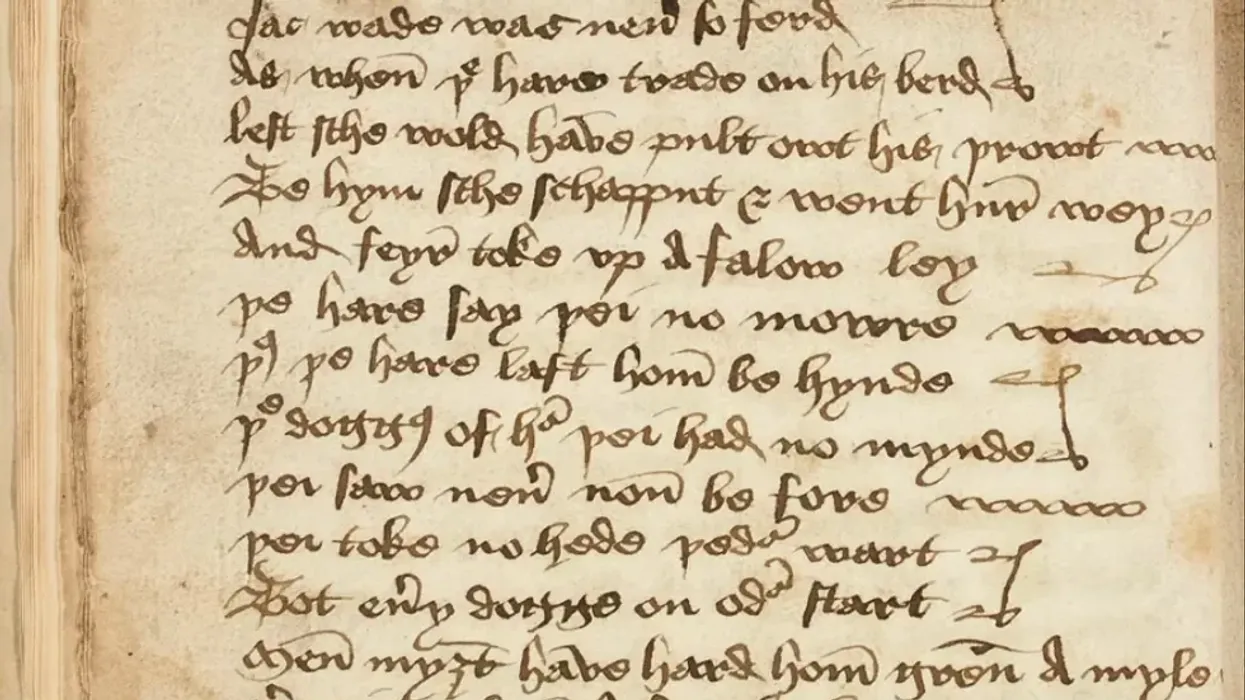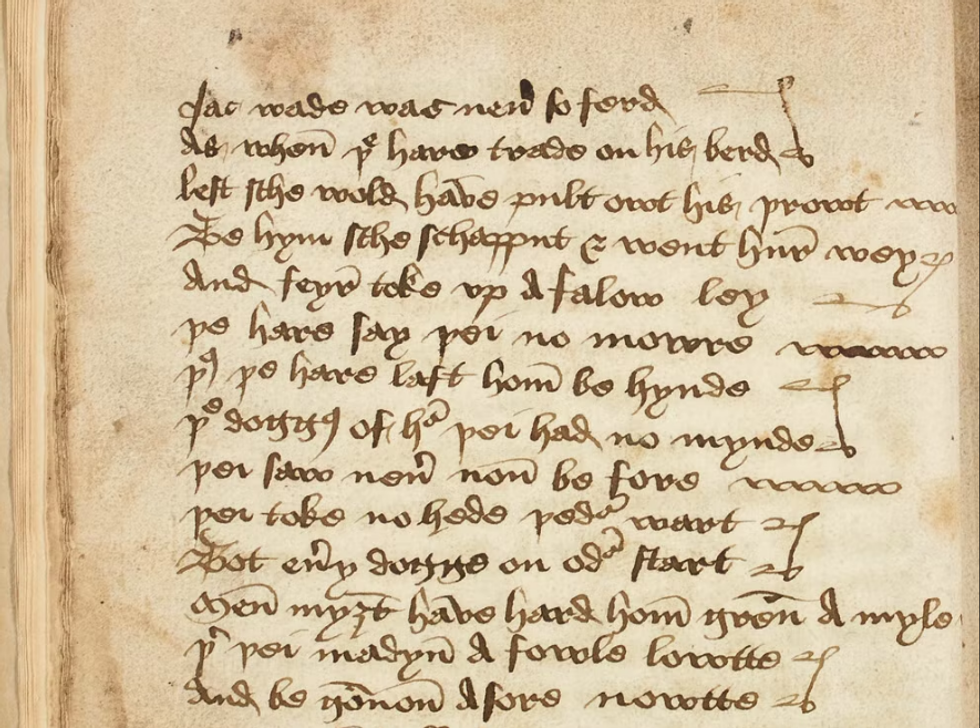
It’s one of the most universal art forms in the world, and it’s now been revealed that live stand-up comedy was very much a factor of medieval life.
People talking to an audience and making them laugh has been around for hundreds and hundreds of years, as detailed in the discovery of a new 15th-century manuscript.
The new discovery in Scotland shows that people in medieval Britain enjoyed live comedy, as well as ‘risky’ jokes.
James Wade is the Associate Professor at Cambridge University’s English Faculty and Girton College and the author of the new study that uncovered them in the National Library of Scotland.
Sign up to our free Indy100 weekly newsletter
The notes relate to jokes mocking kings and members of the church, as well as prompting audiences to drink alcohol.
Writing in a statement, Wade said: “Most medieval poetry, song and storytelling has been lost.”

However, a new discovery features a sign-off note in the “Heege Manuscript” from the 15th century which features an unprecedented record of medieval comedy.
The account features a round-up of a live comedy show performed by a travelling minstrel featuring slapstick, satire and a joke about a rabbit. Wade believes the notes relate to a performance near the Derbyshire-Nottinghamshire border in around 1480.
“Manuscripts often preserve relics of high art. This is something else,” Wade said. “It’s mad and offensive, but just as valuable. Stand-up comedy has always involved taking risks and these texts are risky! They poke fun at everyone, high and low.”
According to Wade, the newly discovered manuscript allows “an insight into someone [that] is incredibly rare and exciting.
“These texts… serve up everything from the satirical, ironic, and nonsensical to the topical, interactive and meta-comedic. It’s a comedy feast.”
“Here we have a self-made entertainer with very little education creating really original, ironic material,” Wade added. “These texts remind us that festive entertainment was flourishing at a time of growing social mobility.”
According to the author of the study published in the Review of English Studies, there are echoes in the manuscript in contemporary comedy.
“You can find echoes of this minstrel’s humor in shows like Mock the Week, situational comedies and slapstick,” Wade said. “The self-irony and making audiences the butt of the joke are still very characteristic of British stand-up comedy.”
“People back then partied a lot more than we do today, so minstrels had plenty of opportunities to perform. They were really important figures in people’s lives right across the social hierarchy. These texts give us a snapshot of medieval life being lived well.”
Have your say in our news democracy. Click the upvote icon at the top of the page to help raise this article through the indy100 rankings.













